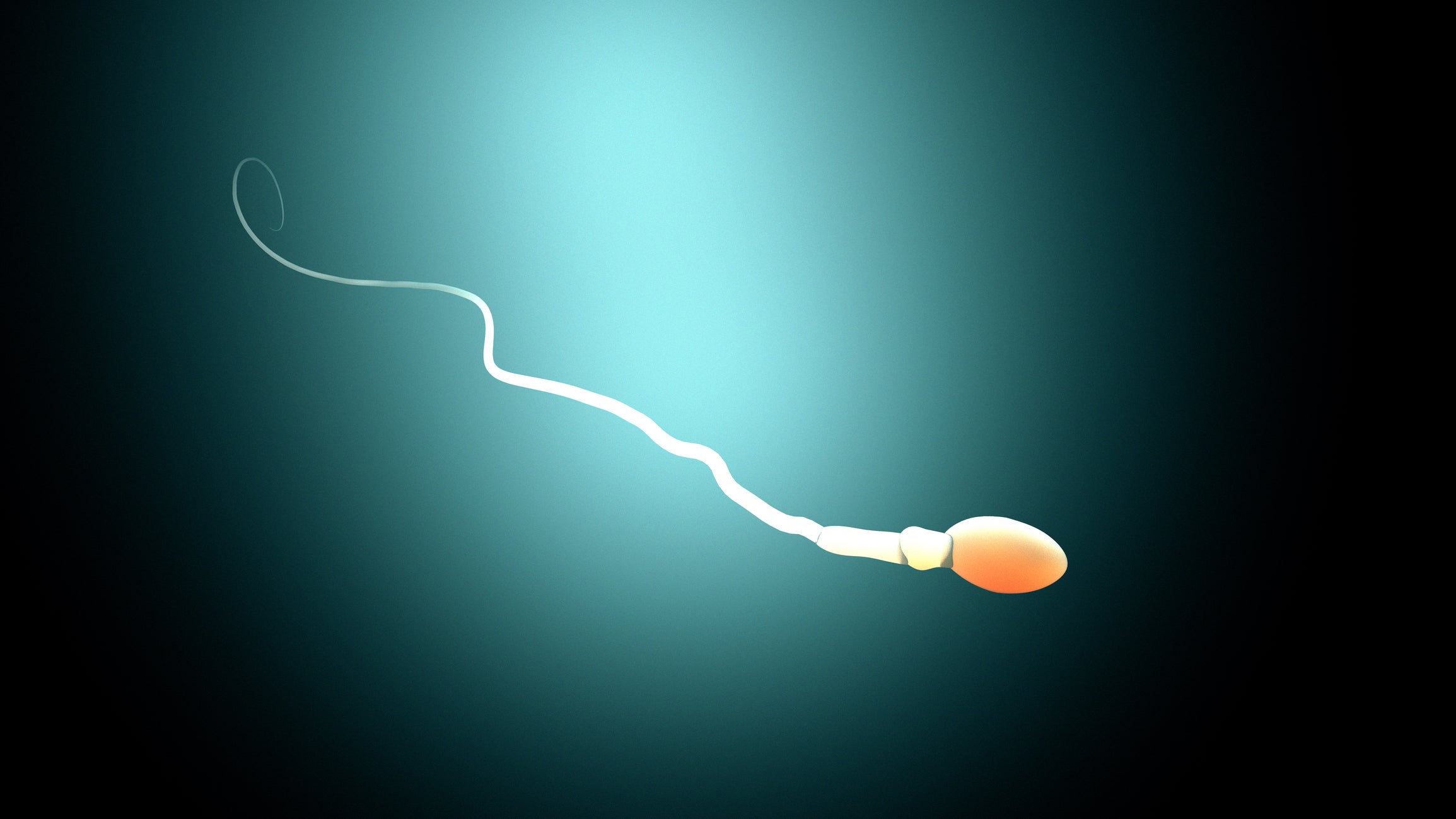-
What is Semen Aspiration?

Semen aspiration, also referred to as sperm retrieval, is a medical procedure used to collect sperm from the male reproductive tract body for use in fertility treatments. The sperm retrieved are used to fertilize the eggs of the female partner through in vitro fertilization (IVF). There are many different techniques that can be used for sperm retrieval, and the best method will depend on the individual’s situation.
There are several reasons why this procedure may be necessary, including sperm transport disorders, blockages in the reproductive tract, or a lack of sperm production. Read on to learn more about semen aspiration, why it’s done, and what to expect during the procedure.
What to Expect During Semen Aspiration Treatment
There are a few different methods of semen aspiration treatment. The sperm may be retrieved from the testicles, epididymis, or vas deferens. In some cases, the sperm may be obtained from the ejaculate.
Semen aspiration is typically performed under sedation or anesthesia. A needle is used to retrieve the sperm, which are then collected in a sterile container. The procedure usually takes less than 30 minutes.
In most cases, semen aspiration is successful in retrieving sperm for use in IVF. Semen aspiration is considered a low-risk fertility treatment and has a high success rate.
What Are the Risks of Semen Aspiration?
Although semen aspiration is generally safe and effective, there are some risks associated with the procedure.
First and foremost, there is a small risk of infection. The uterus is a sterile environment and introducing bacteria from the outside can lead to an infection. There is also a slight risk of puncturing the uterus, which can cause internal bleeding. In very rare cases, this can lead to serious health complications.
There is a very small risk that the needle used to aspirate the semen will damage the embryo. However, this is typically only a concern when aspiration is performed before implantation has occurred.
Overall, while there are some risks associated with semen aspiration, they are generally very rare and can be effectively mitigated with proper medical care. As such, semen aspiration remains a safe and effective way to collect genetic material. Risk can be minimized by working with an experienced medical professional.
Why is Sperm Retrieval Needed?
The most common reason for needing sperm retrieval is due to a blockage in the man’s reproductive tract. This blockage can occur at any point along the way, from the testicles to the opening of the penis. A blockage can be caused by an injury, surgery, or a birth defect.
In some cases, a man may have no sperm in his ejaculate at all. This is called azoospermia and can be caused by several factors, including infection, cancer, and other conditions.
Why Choose Us?
The Center for Vasectomy Reversal in Florida is one of the world’s leading fertility centers, offering a wide range of fertility treatments to help couples conceive. Sperm retrieval is used for men who have had a vasectomy or for those who have a condition that prevents them from producing sperm.
At CVR, our experienced team offers a variety of sperm retrieval techniques, including microsurgical epididymal sperm aspiration (MESA), percutaneous epididymal sperm aspiration (PESA), and testicular sperm extraction (TESE). We also offer intracytoplasmic sperm injection (ICSI), which can be used in conjunction with any of these techniques. Our goal is to help you conceive the healthy baby you’ve always wanted. Contact us today to learn more or to schedule a consultation!
-
Common Myths About Getting Pregnant

Trying to get pregnant can be an exciting and nerve-wracking time. You may have many questions about your fertility and what you can do to increase your chances of conceiving. Unfortunately, there is a lot of misinformation out there about fertility. To help you separate fact from fiction, here are answers to some common myths about getting pregnant:
Myth 1: You’re Most Fertile in Your 20s
Fact: Your 20s are a great time to start trying for a baby, but your fertility actually starts to decline in your early 30s. By age 35, your chances of getting pregnant each month are only about 20 percent. So, if you’re in your mid-30s or older and hoping to conceive, don’t wait too long to start trying.
Myth 2: You Can’t Get Pregnant if You’re Overweight
Fact: It’s true that being overweight can make it more difficult to get pregnant, but it’s not impossible. In fact, many overweight women are able to conceive with no problem. The key is to maintain a healthy weight by eating a balanced diet and getting regular exercise. If you’re having trouble conceiving, talk to your doctor about ways to lose weight safely.
Myth 3: Stress Can Affect Your Fertility
Fact: There’s no evidence that stress can directly impact your fertility. However, stress can indirectly affect fertility by causing you to adopt unhealthy behaviors, like smoking or drinking alcohol. If you’re feeling stressed about getting pregnant, try to find healthy ways to cope, such as exercise or relaxation techniques.
Myth 4: You Can’t Get Pregnant if You Have PCOS
Fact: Polycystic ovary syndrome (PCOS) is a common condition that can make it difficult to get pregnant. However, it’s not impossible. With treatment, many women with PCOS are able to conceive. If you have PCOS and are having trouble getting pregnant, talk to your doctor about fertility treatments that may help.
Myth 5: You Can’t Get Pregnant if You Have Endometriosis
Fact: Endometriosis is a condition that can cause pain and Infertility. However, it’s important to note that not all women with endometriosis are infertile. In fact, many women with mild endometriosis are able to get pregnant with no problem. If you have endometriosis and are having trouble conceiving, talk to your doctor about fertility treatments that may help.
Myth 6: You Can’t Get Pregnant if You Have Fibroids
Fact: Fibroids are non-cancerous growths that can develop in the uterus. They are very common, and most women who have them will never experience any symptoms. However, in some cases, fibroids can cause Infertility. If you have fibroids and are having trouble conceiving, talk to your doctor about fertility treatments that may help.
Myth 7: You Can’t Get Pregnant if You Have a History of Miscarriage
Fact: A history of miscarriage can be heartbreaking, but it doesn’t mean you’ll never be able to have a baby. In fact, most women who have had a miscarriage go on to have a healthy pregnancy. If you’ve had a miscarriage and are hoping to conceive again, talk to your doctor about ways to reduce your risk of miscarrying.
Myth 8: Infertility is Reversible in Every Case
Fact: While there are some cases of infertility that can be reversed, such as blocked fallopian tubes, many other causes of infertility are not reversible. However, that doesn’t mean you’ll never be able to have a baby. There are many fertility treatments available that can help you conceive, even if you have a condition that is not reversible.
Myth 9: Overall Health Doesn’t Connect with Your Fertility
Fact: Your overall health does play a role in your fertility. Conditions like obesity, diabetes, and high blood pressure can all impact your ability to get pregnant. That’s why it’s so important to maintain a healthy lifestyle if you’re hoping to conceive. Eating a nutritious diet, getting regular exercise, and managing stress can all help improve your fertility.
Myth 10: IVF is Too Expensive to Consider
Fact: In vitro fertilization (IVF) is one of the most expensive fertility treatments available. However, it’s also one of the most successful. If you’re struggling to conceive, IVF may be an option worth considering. There are many financing options available that can make IVF more affordable. Talk to your doctor about whether IVF is right for you.
If you are considering fertility help, you may want to consider The Center for Vasectomy Reversal in Florida. Our center is known for providing high-quality care and services to patients who are seeking help with their fertility. Our staff at The Center for Vasectomy Reversal is highly trained and experienced in helping patients achieve successful pregnancies. In addition, we offer a variety of services that can help you become pregnant. Contact us today to learn more!
-
Baby Safety Month

Baby Safety Month is an annual campaign that raises awareness about the importance of child safety. The campaign runs throughout the month of September and offers parents and caregivers tips and resources on how to keep their children safe.
Some of the topics that are covered during Baby Safety Month include: car safety, home safety, water safety, and general safety tips.
The History of Baby Safety Month
The history of Baby Safety Month actually dates back to the early 20th century. In 1913, the American Academy of Pediatrics (AAP) held its first meeting in New York City. At this meeting, the AAP decided to create a committee on infant care. This committee was tasked with creating guidelines for the care of infants and young children.
One of the first topics that the AAP addressed was infant mortality. In 1916, the AAP released a report that showed that over 6,000 infants died each year from crib death. This was a shocking number and the AAP realized that something needed to be done to prevent these deaths.
To raise awareness about infant safety, the AAP decided to designate September as Baby Safety Month. During this month, the AAP would release information and tips on how to keep babies safe. The goal was to educate parents and caregivers about the dangers that infants faced and how to prevent them.
Over the years, Baby Safety Month has continued to grow. Today, it is celebrated in countries all over the world. In the United States, many organizations participate in Baby Safety Month by sharing information and resources with parents and caregivers. These organizations include the AAP, Centers for Disease Control and Prevention (CDC), National Highway Traffic Safety Administration (NHTSA), and many others.
During Baby Safety Month, take time to think about how to keep your little one safe. Here are a few tips to get you started:
Always Use a Safe Sleep Surface for Your Baby
This means using a firm mattress in a crib or bassinet that meets current safety standards. Don’t use a pillow, quilt, or soft mattress, as these can increase the risk of Sudden Infant Death Syndrome (SIDS).
Use a Proper Car Safety Seat
Car safety seats are chosen based on your baby’s age, weight, and height. Make sure the seat is installed correctly and that your baby is buckled in properly.
Keep Dangerous Items Out of Reach of Your Baby
This includes items like medicines, cleaning products, and small objects that your baby could choke on.
Supervise Your Baby at All Times
Even if you’re just stepping away for a moment, never leave your baby unsupervised.
Be Prepared for Emergencies
Learn CPR and First Aid and keep the phone number of your local poison control center handy.
Following these tips will help you keep your baby safe during Baby Safety Month and all year long. For more information on child safety, visit the website of the National Child Safety Council.
As a parent, you play a vital role in keeping your child safe. Take this opportunity to learn more about how you can protect your little one from harm. And don’t forget to share what you’ve learned with other parents and caregivers! Together, we can help keep all kids safe.
Get more tips and information by visiting our blog! The Center for Vasectomy Reversal in Florida is happy to answer any questions you have and help you make the best decision for your fertility. Contact us today to schedule a consultation.
-
Healthy Baby Food to Make at Home

There are many healthy baby food recipes that you can make at home, and they don’t have to be boring or bland. You can make nutrient-rich, flavorful, and fun foods for your little one to enjoy. Read on to learn more about the benefits of homemade baby food and to get some tips on how to get started.
The Benefits of Homemade Baby Food
The benefits of making your own baby food at home have prompted many parents to do so. Homemade baby food is:
- More Nutritious: When you make your own baby food, you have complete control over what goes into it. This means that you can choose to use fresh, organic ingredients that are high in nutrients. Commercial baby foods often contain preservatives and other additives that can be harmful to your child’s health.
- More Affordable: Making your own baby food is typically more affordable than purchasing commercial varieties. This is especially true if you purchase ingredients in bulk or grow your own fruits and vegetables.
- Tailored Flavor and Texture: You can tailor the flavor and texture of homemade baby food to better suit your child’s preferences. For example, if your baby is still getting used to solid foods, you can make a puree that is easy to eat and digest. As your child gets older, you can start to add in more textured foods such as chunks of fruit or vegetables.
- Quality bonding time: One of the best parts about making your own baby food is the quality bonding time it provides. During mealtimes, you can sit down with your little one and chat while they enjoy their food. This is a great way to create lasting memories together.
Ensure that your baby is getting the nutrients they need by making your own baby food. That way, you can control what goes into it and how it is prepared. Plus, homemade baby food often tastes better than store-bought varieties.
Ideas to Get You Started
If you’re interested in trying your hand at making homemade baby food, there are a few things you’ll need to get started. First, invest in a good quality blender or food processor. You’ll also need some basic kitchen supplies like measuring cups and spoons, as well as storage containers for freezing any leftover baby food. Finally, it’s helpful to have a recipe book on hand for ideas and inspiration. With these tools in hand, you’re ready to start whipping up healthy, delicious meals for your little one!
Healthy Baby Food Recipes
When it comes to healthy baby food recipes, there are endless possibilities. Here are some ideas to get you started:
- Pureed fruits and vegetables: These are great for starting solids or for older babies who are ready for more textured foods. Try pureeing carrots, sweet potatoes, peas, apples, bananas, and other fruits and veggies. You can also mix and match different flavors to create new taste combinations.
- Fruit and veggie pouches: These are convenient and easy to take on the go. Simply fill reusable pouches with your baby’s favorite pureed fruits or vegetables.
- Homemade baby cereals: Start with a simple rice cereal and then add in pureed fruits or vegetables for additional nutrition and flavor. Oats and barley are other great options for homemade baby cereals.
- Finger foods: As your baby starts to develop their pincer grasp, they will be ready for finger foods. Offer them soft fruits and vegetables that they can easily pick up and eat, such as ripe bananas, cooked sweet potatoes, and steamed broccoli florets.
- Healthy snacks: There are plenty of healthy snack options for babies and toddlers. Try making your own fruit bars or energy bites using pureed fruits, oats, nuts, and seeds. You can also offer air-popped popcorn, whole grain crackers, and yogurt dips.
Making your own baby food is a great way to ensure that your little one is getting the nutrients they need. And it’s also a fun way to get creative in the kitchen! Try out some of these healthy baby food recipes and see what your little one enjoys the most.
Visit our blog to stay up-to-date with information and tips for healthy parenting and more! The Center for Vasectomy Reversal in Florida is helping families across the country reach their fertility goals. Contact us today to schedule a consultation.
Recent Posts
Popular Posts
categories
- Uncategorized
- Sperm Retrieval
- vasectomy reversal
- Emergency
- Dr. Green
- sperm count
- fertility
- male infertility
- MESA
- medical care
- low sperm count
- IVF
- male fertility testing
- anesthesia
- pregnancy
- sperm aspiration
- semen analysis
- post-vasectomy pain syndrome
- infertility
- VE
- anti-sperm antibodies
- older dad
- general anesthesia
- gender reveal party
- post-operative infections
- baby name
- parent
- baby's first year
- fertilization process
- spinal anesthesia
- ACS Fellow
- nutrition tips
- concierge-level care
- fertility planning app
- azoospermia
- out-of-town patients
- V-V
- post-vasectomy reversal
- conceiving
- vasectomy
- vasoepididymostomy
- smoking
- sperm quality
- baby registry
- infographic
- surgical care
- surgical consultation process
- prostate cancer
- baby gender
- family time
- COVID
- Baby Shower
- Child Care
- Halloween Costume Ideas for Babies
- Halloween
- Halloween Safety Tips
- Celebrity Infertility Spotlight
- Postpartum
- testosterone
- Father's Day
- Father
- Men's Health
- Thanksgiving
- Pregnancy Announcement
- Parenting Tips
- Sperm
